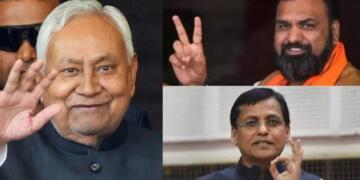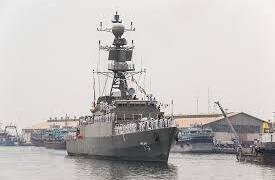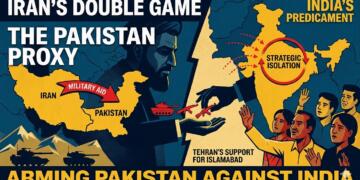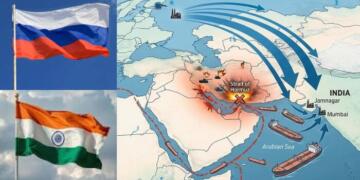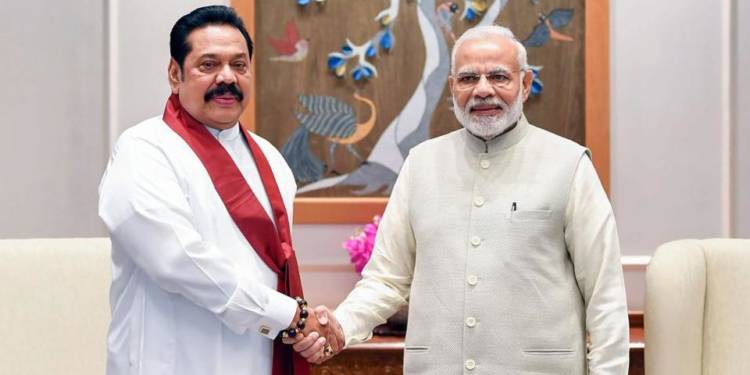In a development that could have a significant bearing upon the strategic Indian Ocean Region in the context of competing Asian giants, China and India, Sri Lankan Prime Minister Mahinda Rajapaksa’s India visit is being seen as the stepping stone for the revival of NSA-level dialogue between India, Maldives and Sri Lanka.
The revival of trilateral maritime security cooperation in the Indian Ocean amid growing Chinese presence, between New Delhi and the two strategically located Island countries, would come a major shot in the arm for India.
I will be in Delhi on a state visit, meeting my good friend PM @narendramodi, the President, the External Affairs Minister & other govt.officials. Looking forward to building new avenues of cooperation with this visit & strengthening the already existing ties between our nations.
— Mahinda Rajapaksa (@PresRajapaksa) February 7, 2020
It is important to mention here that the Rajapaksa brothers- President Gotabaya Rajapaksa and Prime Minister Mahinda Rajapaksa, who are in firm control of Colombo’s affairs came to power primarily on the promise of making the island country secure, after the Easter Day bombings.
They want India’s help in combating the Islamic State and other terror threats, as well as reducing the debts Sri Lanka owes to China, which also explains how Mahinda Rajapaksa’s visit could help in reviving the trilateral NSA-level talks. Maldives besides Sri Lanka is said to be keen at reviving the trilateral NSA level talks at a time when the archipelago country’s defence ties with India are going through a phase of expansion.
The NSA level dialogue between the three countries had to be put on hold five years ago, owing to the political circumstances in the Maldives at the time. Now, the three countries seem keen to revive the high-level dialogue.
What could also allow India to further affirm its already growing influence in the Vanilla countries that are also crucially located in the Indian Ocean Region, Mauritius and Seychelles could also be included in the NSA-level talks at a later stage.
The two Vanilla island countries were present as guest countries in the 2014 trilateral NSA dialogue held by India. Mauritius had however declined to join any NSA-level dialogue due to allegations of human rights violations in Sri Lanka under the Mahinda Rajapaksa regime, who was then the President of the island country.
However, all such insecurities seem to have been taken care of now as India looks all set to make a major breakthrough as several strategically located island countries in the Indian Ocean Region seem to be willing to join hands with New Delhi when it comes to co-operation in maritime security and counter-terrorism.
Those in the know of things have said that tackling the growing terror network and maritime security is going to be the topmost priorities of this trilateral dialogue, and its expanded format later on.
China has been looking to interact with countries in the region in order to pursue its ‘String of Pearls’ strategy, in a bid to encircle India in the crucial maritime region. It had even gained significant influence in both Sri Lanka and the Maldives, but Mahinda Rajapaksa’s India visit and the breakthrough that it brings along shows how India has been able to stage an unbelievable turnaround.
Beijing had made critical inroads into Sri Lanka with its debt-trap diplomacy as manifested by the Hambantota port. Subsequent misunderstandings had led to souring of relations between Mahinda Rajapaksa and New Delhi, during the former’s tenure as the Sri Lanka President.
But Gotabaya Rajapaksa’s New Delhi outreach after coming into power shows how the two countries have overcome all insecurities and misunderstandings. The two countries are now looking to explore the possibilities of forging renewed strategic ties.
The turnaround in the Maldives has been equally dramatic. After the pro-China President Abdullah Yameen was thrown out of power by the Maldives, all obstacles got removed when it comes to close, strategic ties between India and Maldives.
Modi government has realised that there are two friendly regimes in the two island countries, both of which want to forge closer ties with India and are increasingly signifying the appetite for greater co-operation in the areas of counter-terrorism and maritime security.
New Delhi is, therefore, making full use of the renewed warmth in ties with the two countries and is trying to ensure that the favourable situation in the region is fully harnessed. Sleepless nights lie ahead for the Dragon as India forges closer, multilateral ties in the Indian Ocean Region.


